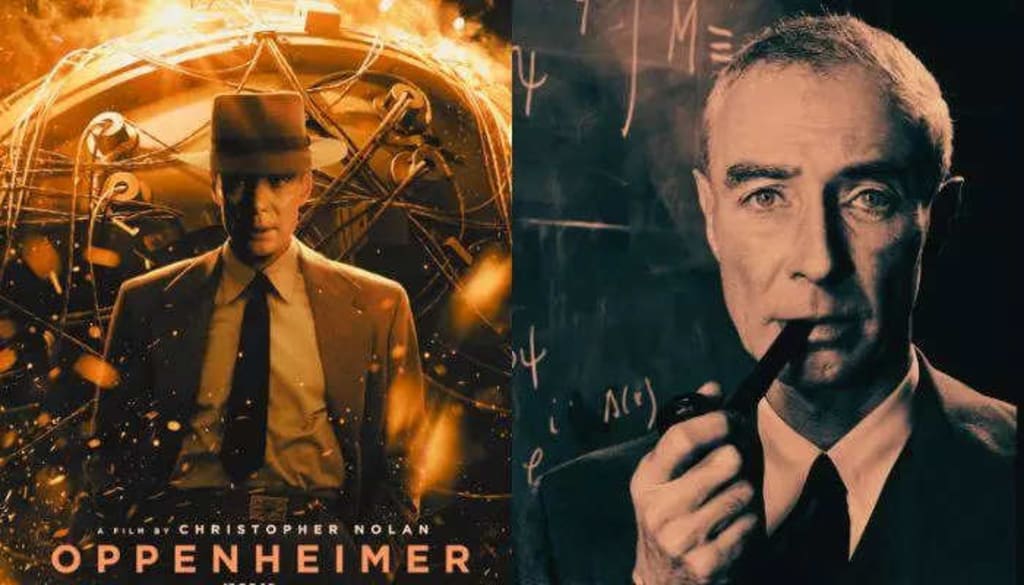The Father of the Atomic Bomb: Unraveling Oppenheimer's Legacy
The Enigma of J. Robert Oppenheimer: Father of the Atomic Bomb

Introduction: The Birth of a Devastating Weapon
On July 16, 1945, the world witnessed a moment that would forever alter history - the birth of the atomic bomb. This devastating weapon of mass destruction was the creation of J. Robert Oppenheimer, a man whose scientific brilliance and personal journey would intertwine, leading him to both greatness and eventual disgrace. Let us delve into the life of J. Robert Oppenheimer, the Father of the Atomic Bomb, and explore the events that shaped him and the profound impact of his creation.
Early Life and Brilliance
J. Robert Oppenheimer was born in 1904, displaying remarkable promise from an early age. Fueled by his passion for chemistry and physics, he enrolled at Harvard, where he completed his degree in an impressive three years, showcasing both dedication and intellect. Despite a brief interruption due to illness, Oppenheimer's thirst for knowledge led him to the University of Göttingen in Germany, where he conducted groundbreaking theoretical physics research at the young age of 23, solidifying his reputation as a brilliant scientist.
The Threat of Hitler's Regime and the Manhattan Project
The rise of Hitler's regime in Europe raised concerns about the development of powerful weapons, prompting Albert Einstein to alert the world to this grave threat. In a letter to the American president, Einstein advocated for the pursuit of an atomic bomb to prevent potential devastation. Faced with suspicion due to his German background, Einstein's plea paved the way for the Manhattan Project, which the American government entrusted to J. Robert Oppenheimer.
Sharing Einstein's views, Oppenheimer believed that America should take the lead in developing the atomic bomb. The Manhattan Project became the most significant and secretive endeavor in American history, with the construction of Los Alamos in New Mexico, a complete town where around 130,000 workers, including scientists and technicians, collaborated to bring Oppenheimer's vision to life. The project operated under strict security measures, ensuring utmost secrecy.
The Creation of the Atomic Bomb and Its Devastating Power
Prior to the Manhattan Project, Oppenheimer had already conducted research on nuclear fission, discovering the potential of uranium 235 to release immense energy when split. This groundbreaking discovery set the foundation for the atomic bombs' devastating power. The chain reaction created by the split uranium 235 atoms resulted in a powerful explosion, far surpassing the destructive capacity of conventional bombs. The atomic bomb became a weapon capable of annihilation on an unprecedented scale.
The Horrific Consequences and Personal Turmoil
As World War II raged on, the United States made the difficult decision to use the atomic bomb. Hiroshima and Nagasaki became the targets of the devastating attacks, claiming the lives of over 250,000 people. Oppenheimer, along with other scientists involved, witnessed the horrifying consequences of their creation. The immense destruction weighed heavily on him, and he began to isolate himself, haunted by regret and guilt.
However, despite his pivotal role in the Manhattan Project, Oppenheimer's life took a dark turn. Suspicions arose regarding his associations, as his girlfriend and ex-wife had ties to the Communist Party. This, coupled with the Soviet Union's sudden acquisition of atomic bombs, led to accusations against Oppenheimer. He vehemently denied any connections to communism or espionage during the subsequent inquiry.
Fall from Grace and Legacy
Unfortunately, despite the lack of concrete evidence, the decision went against Oppenheimer. He was stripped of his security clearances and project rights, enduring years of isolation and silence. In 1961, when John F. Kennedy became president, Oppenheimer was offered the chance to regain his security clearance through a new tribunal. However, already battling cancer, he declined the opportunity.
Kennedy recognized Oppenheimer's innocence and awarded him the highest scientific honor in America. But it was too late. Oppenheimer's health declined rapidly, and he passed away in 1966. J. Robert Oppenheimer, the man who unleashed the atomic bomb, rests at peace. His ashes scattered on a beach now known as Oppenheimer Beach serve as a reminder of the complex legacy left behind by a scientist who became both the creator and victim of his own creation.
Conclusion: A Complex Legacy
J. Robert Oppenheimer's life and work are a testament to the dual nature of scientific progress. His brilliance led to the creation of the atomic bomb, an unprecedented force that reshaped history. However, the devastating consequences of its use and the personal turmoil he experienced serve as a stark reminder of the ethical challenges faced by scientists. J. Robert Oppenheimer's legacy continues to provoke thought and reflection on the immense power of science and the responsibility that comes with it.






Comments
Young Writer is not accepting comments at the moment
Want to show your support? Send them a one-off tip.